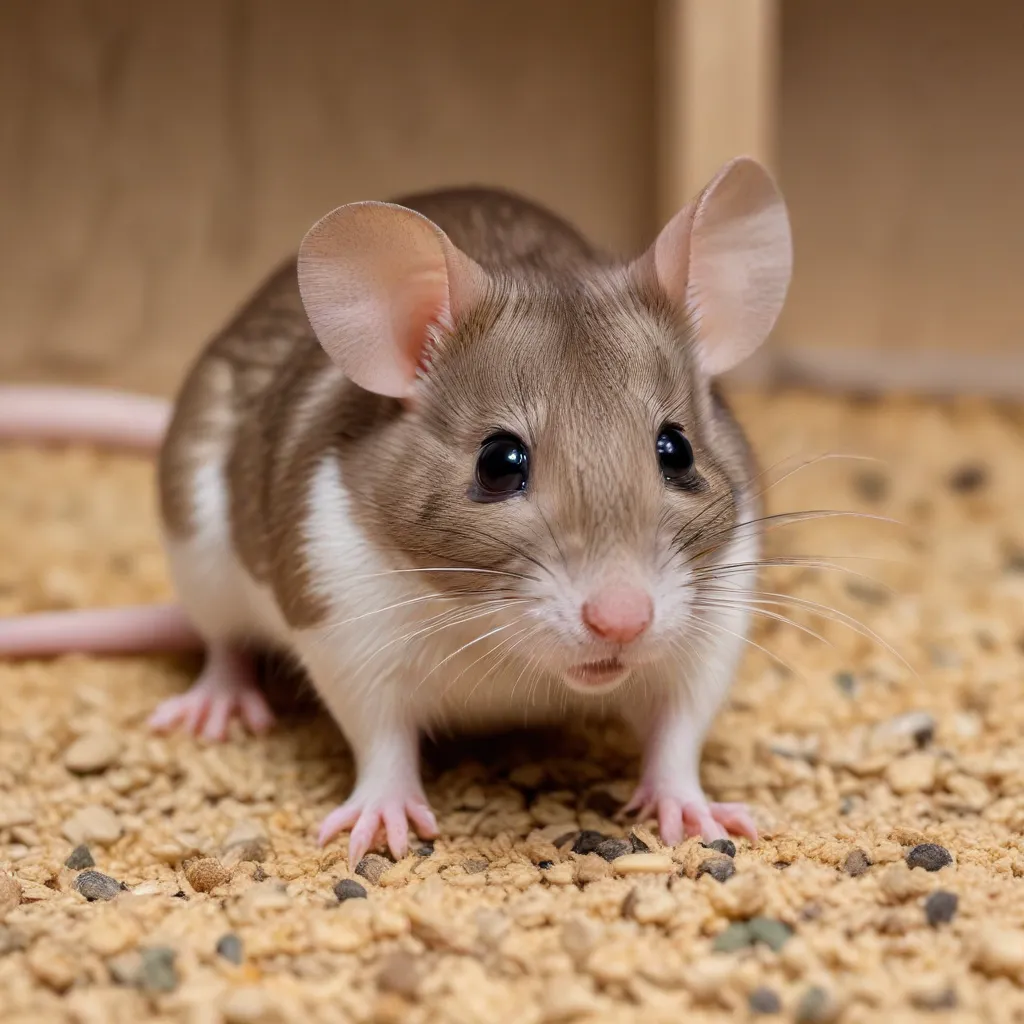
As wine stewards at the Wine Garden Inn, we’re often asked about the best way to care for our furry little friends – the mice that call our estate home. While these pint-sized rodents may seem like simple creatures, their nutritional needs are quite complex. In this comprehensive guide, we’ll delve into the ins and outs of proper mouse nutrition, covering everything from staple foods to supplementary treats, water intake, and common feeding mistakes to avoid.
Mice Nutrition
Dietary Requirements
At the heart of a healthy mouse diet are formulated diets – specialized blends that meet the unique nutritional needs of these curious creatures. Wild mice are omnivorous, subsisting on a varied diet of grasses, seeds, grains, and occasional invertebrates. Fortunately, extensive research on laboratory mice has provided us with a solid understanding of their dietary requirements, allowing us to replicate a balanced, wholesome diet for our pet companions.
Staple Food
The foundation of a mouse’s diet should be a high-quality pelleted feed designed specifically for rodents. These pelleted formulas contain a carefully calibrated mix of proteins, carbohydrates, fats, vitamins, and minerals to ensure your mice receive all the essential nutrients they need. Unlike seed mixes, which can lead to selective feeding and dietary imbalances, pelleted feeds encourage your mice to consume a complete and balanced diet.
Supplementary Foods
While the pelleted feed should make up the majority of your mice’s diet, you can offer small amounts of fresh fruits and vegetables as occasional treats. Good options include:
* Apples
* Berries
* Kiwi
* Leafy greens
* Carrots
These supplementary foods provide variety, additional nutrients, and an opportunity for your mice to express their natural foraging behaviors. However, it’s important to limit treats to no more than 10% of their total caloric intake to prevent obesity and other health issues.
Water Intake
As nocturnal creatures, mice do most of their eating and drinking during the night. Ensuring they have access to clean, fresh water at all times is crucial. We recommend using sturdy, chew-resistant water bottles rather than open bowls, which can become soiled with bedding and droppings. Remember to check the bottles daily and replace the water to keep it crisp and clean.
Feeding Considerations
Appropriate Portions
When it comes to portion sizes, it’s important to strike a balance. Overfeeding can lead to obesity and associated health problems, while underefeeding can result in nutritional deficiencies. As a general guideline, provide your mice with just enough food to last until the next feeding, and keep an eye on their body condition to make adjustments as needed.
Food Frequency
Mice are grazing animals, meaning they prefer to have access to food throughout the day (or night, in their case) rather than relying on scheduled meals. Provide your mice with a constant supply of their pelleted diet, replenishing it as needed to ensure they always have a reliable source of sustenance.
Dietary Restrictions
Certain foods should be strictly off-limits for your pet mice, as they can be harmful or even toxic. Steer clear of:
* Seed/grain mixes
* Sugary and high-fat foods (e.g., sweets, dairy products)
* Potentially harmful plants and foods (e.g., chocolate, grapes/raisins, avocado, garlic, onion, coffee, tea, alcohol)
Nutritional Needs by Life Stage
Infant Mice
During the first few weeks of life, infant mice, or pups, have very specific nutritional requirements. Newborn mice rely entirely on their mother’s milk, which provides all the essential nutrients for growth and development. Once weaned, pups should be gradually transitioned to a high-protein, high-fat pelleted diet to support their rapid growth and activity levels.
Adult Mice
As mice reach adulthood, their dietary needs shift to maintain optimal health and body condition. The macronutrient balance in their pelleted feed should provide a suitable ratio of proteins, carbohydrates, and fats to meet their energy requirements. Additionally, supplementing with vitamin and mineral additives can help ensure your adult mice receive all the micronutrients they need.
Food Safety and Hygiene
Food Storage
Proper storage of your mice’s food is crucial to maintain freshness and prevent contamination. Keep the pelleted feed in an airtight container in a cool, dry place, away from direct sunlight. Monitor the feed for any signs of spoilage, such as clumping, discoloration, or an off odor, and replace it as needed.
Food Preparation
When it comes to serving fresh foods like fruits and vegetables, be sure to thoroughly wash and disinfect them before offering them to your mice. This helps eliminate any potential pathogens or pesticide residues that could harm your furry friends. Additionally, avoid providing any food that may pose a choking hazard, such as sticky or stringy items.
Common Feeding Mistakes
Overfeeding
One of the most common pitfalls in mouse care is overfeeding, which can lead to obesity and a host of related health problems. Signs of overweight mice include a rounded, bulging abdomen and decreased activity levels. If you notice these indicators, it’s important to adjust their portion sizes and limit the number of calorie-dense treats.
Nutritional Deficiencies
On the flip side, failing to provide a balanced diet can result in nutritional deficiencies. Symptoms may include poor coat condition, lethargy, and even developmental issues. To ensure your mice receive all the essential nutrients they need, stick to a high-quality pelleted feed and consult with your veterinarian if you notice any concerning changes in your pets’ health or appearance.
Caring for our resident mice is a responsibility we take seriously here at the Wine Garden Inn. By understanding their unique dietary requirements and following best practices for food storage and hygiene, we can ensure our furry friends thrive and live their best lives. Remember, when it comes to mouse nutrition, a little preparation and attention to detail can go a long way in keeping your pets happy and healthy.
